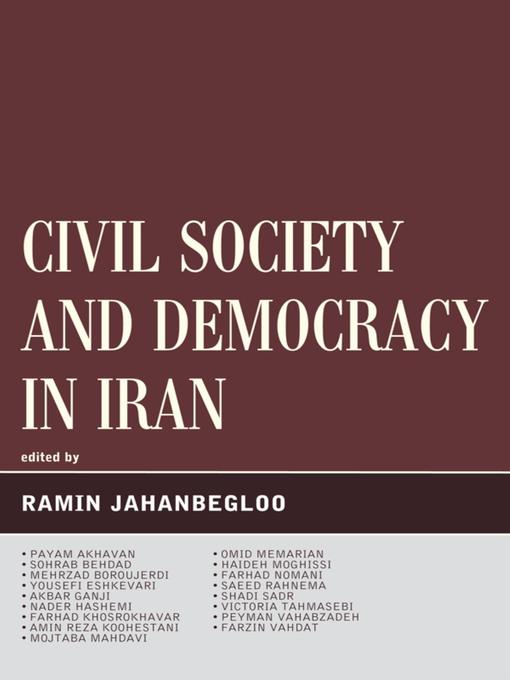-
Description
-
Creators
-
Details

- Ramin Jahanbegloo - Editor
- Payam Akhavan - Contributor
- Sohrab Behdad - Contributor
- Mehrzad Boroujerdi - Contributor
- Yousefi Eshkevari - Contributor
- Akbar Ganji - Contributor
- Nader Hashemi - Contributor
- Farhad Khosrokhavar - Contributor
- Amin Reza Koohestani - Contributor
- Mojtaba Mahdavi - Contributor
- Omid Memarian - Contributor
- Haideh Moghissi - Contributor
- Farhad Nomani - Contributor
- Saeed Rahnema - Contributor
- Shadi Sadr - Contributor
- Victoria Tahmasebi - Contributor
- Peyman Vahabzadeh - Contributor
- Farzin Vahdat - Contributor
OverDrive Read
- ISBN: 9780739172230
- Release date: December 30, 2011
EPUB ebook
- ISBN: 9780739172230
- File size: 505 KB
- Release date: December 30, 2011
